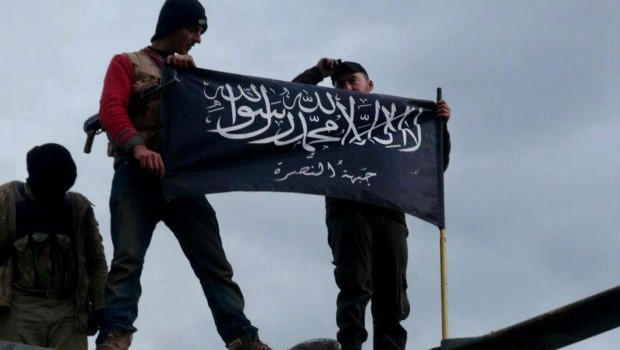Saudi Arabia’s recent decision to blacklist several aggressive groups taking part in activities on the ground in Syria and elsewhere carries a tone of challenge. But will this decision end the exploitation of Saudi Arabia and of Saudi people, money and institutions?
Many groups have been organized in the name of the memorization of the Holy Qur’an, the name of jihad, and the rescue of the oppressed. Some of these groups had political projects, while most were armed groups with violence being a declared part of their program.
These groups claim their external activities are against their enemies, while in fact, their ultimate target is Saudi Arabia. Due to the recurrence of their activities, once against the Serbs, a second time against the Americans, a third in Somalia, a fourth in Burma, and a fifth against Bashar Al-Assad in Syria, there are no longer any doubts that these organizations are all the same, having one unique goal.
There is no longer a need to argue about the validity of the accusations against these groups—the same groups that succeed in misleading people by claiming to be innocent and victims of the hostility against Islam.
What is said about their political activities are plain lies. Some of them admit to being armed and violent, but claim that their activities are directed against the “other” and the “enemy.” Saudis fell for almost of all the lies, whether they were members of the general public or intellectuals. But over the years, the truth has finally been revealed: Islam and Muslims have nothing to do with their activities.
The latest example of using the argument of defending Muslim people is what the Al-Nusra Front and the Islamic State of Iraq and Syria (ISIS) are doing. Many of their supporters and a number of idiots have raised money, recruited men, and prayed in mosques for these groups’ victory and for the triumph of the oppressed in Syria.
A few months later, everyone discovered that they were in fact terrorist groups, similarly evil to other organizations affiliated to Al-Qaeda, which had waged wars against civilians in the region.
Oppressed Syrians have nothing to do with what ISIS and the Al-Nusra Front are doing, exploiting chaos in order to seize areas that have lost all security, using them as rally points for the training and formation of a military organization that threatens the people of Syria, Saudi Arabia and the rest of the region.
ISIS and the Al-Nusra Front were never a threat to the Assad regime, Iran or Israel. At first, their messages in the media and on social networking websites were limited to asking for the support of Syria and the Syrian people. Now, they are clearly and openly talking about acting against Saudi Arabia and other countries in the future.
That is why we are not surprised that those who support these groups are countries that are at odds with Saudi Arabia, or that Syria has nothing to do with their armament or mobilization.
The question now is: Shouldn’t all the activities that lead to such serious consequences, whether in the name of Islam or the oppressed, be criminalized? Despite the large number of appeals and warnings, we always rush to take a particular stance on such issues, only to discover that they are just another cover for an act of aggression against us.
It is essential to criminalize these groups and establish a legal basis on which to hold violators to account, but we must keep in mind other aspects that are equally important. These people are ghosts who would never admit their affiliation, and leaving education, schools, mosques and media open to the public can help them achieve their goals by acquiring sympathy and support.
